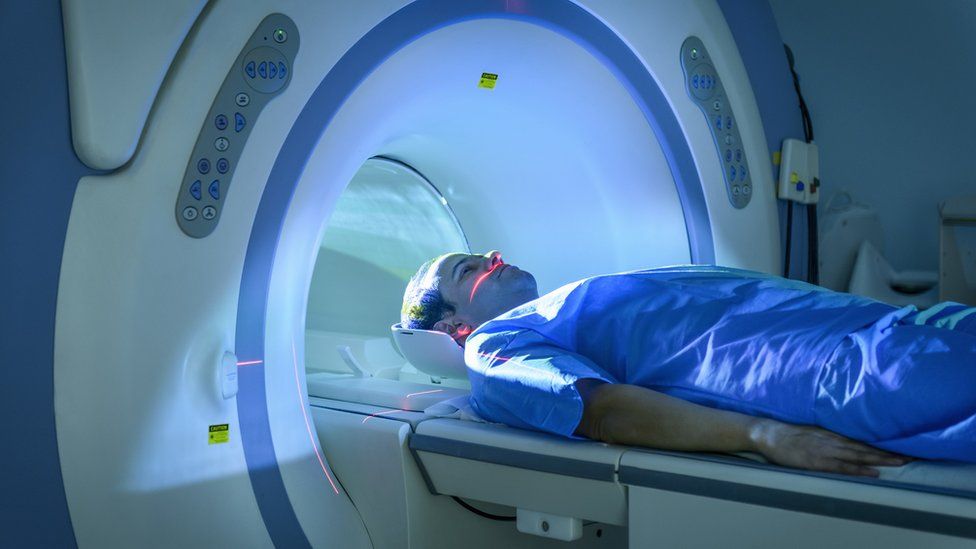People living with long Covid after being admitted to hospital are more likely to show some damage to major organs, according to a new study.
MRI scans revealed patients were three times more likely to have some abnormalities in multiple organs such as the lungs, brain and kidneys.
Researchers believe there is a link with the severity of the illness.
It is hoped the UK study will help in the development of more effective treatments for long Covid.
The study, published in Lancet Respiratory Medicine, looked at 259 patients who fell so ill with the virus that they were admitted to hospital.
Five months after they were discharged, MRI scans of their major organs showed some significant differences when compared to a group of 52 people who had never had Covid.
The biggest impact was seen on the lungs, where the scans were 14 times more likely to show abnormalities.
MRI scans were also three times more likely to show some abnormalities in the brain – and twice as likely in the kidneys – among people who had had severe Covid.
There was no significant difference in the health of the heart or liver.
- Brain fog after Covid linked to blood clots – study
- What are the symptoms of long Covid?
Dr Betty Raman, from the University of Oxford and one of the lead investigators on the study, says it is clear that those living with long Covid symptoms are more likely to have experienced some organ damage.
“Five months after being discharged from hospital for Covid, we found more abnormalities in the lungs, brain and kidneys in those patients than in the group who had never had Covid,” she said.
“The patient’s age, how severely ill they were with Covid, as well as if they had other illnesses at the same time, were all significant factors in whether or not we found damage to these important organs in the body.”
New treatments
The findings are part of a bigger study looking at the long-term effects of Covid on those who were hospitalised, known as the Phosp-Covid study.
The researchers found some symptoms matched up with signs of organ damage revealed by the MRI scans – for example, a tight chest and cough with abnormalities in the lungs. However, not all of the symptoms experienced by those living with long Covid could be directly linked to what was seen on the scans.
Dr Raman says it also seems that abnormalities in more than one organ were more common among people who had been admitted to hospital and were still reporting physical and mental health problems after they had recovered from the initial infection.
“What we are seeing is that people with multi-organ pathology on MRI – that is, they had more than two organs affected – were four times more likely to report severe and very severe mental and physical impairment,” she said.
“Our findings also highlight the need for longer term multidisciplinary follow-up services focused on pulmonary and extrapulmonary health (kidneys, brain and mental health), particularly for those hospitalised for Covid.”
Prof Chris Brightling, from the University of Leicester and who is leading the Phosp-Covid study, says the research is part of a wider effort to understand the group of different symptoms that make up the syndrome known as long Covid.
“This detailed study of whole-body imaging confirms that changes in multiple organs is seen months after being hospitalised for Covid,” he said.
“The Phosp-Covid study is working on understanding why this happens and how we can develop tests and new treatments for long Covid.”
